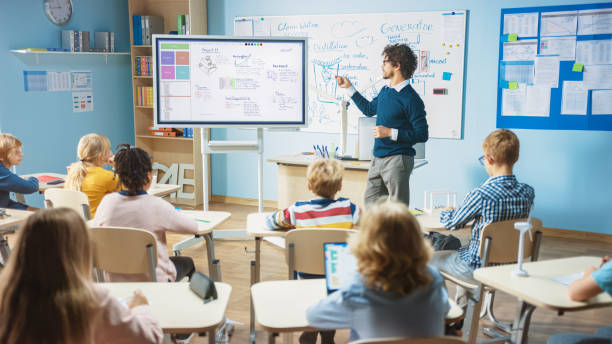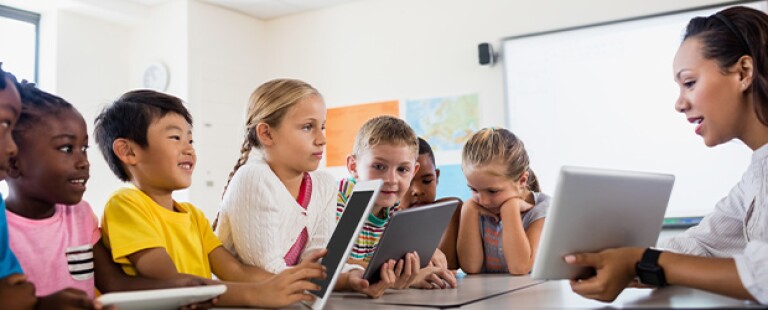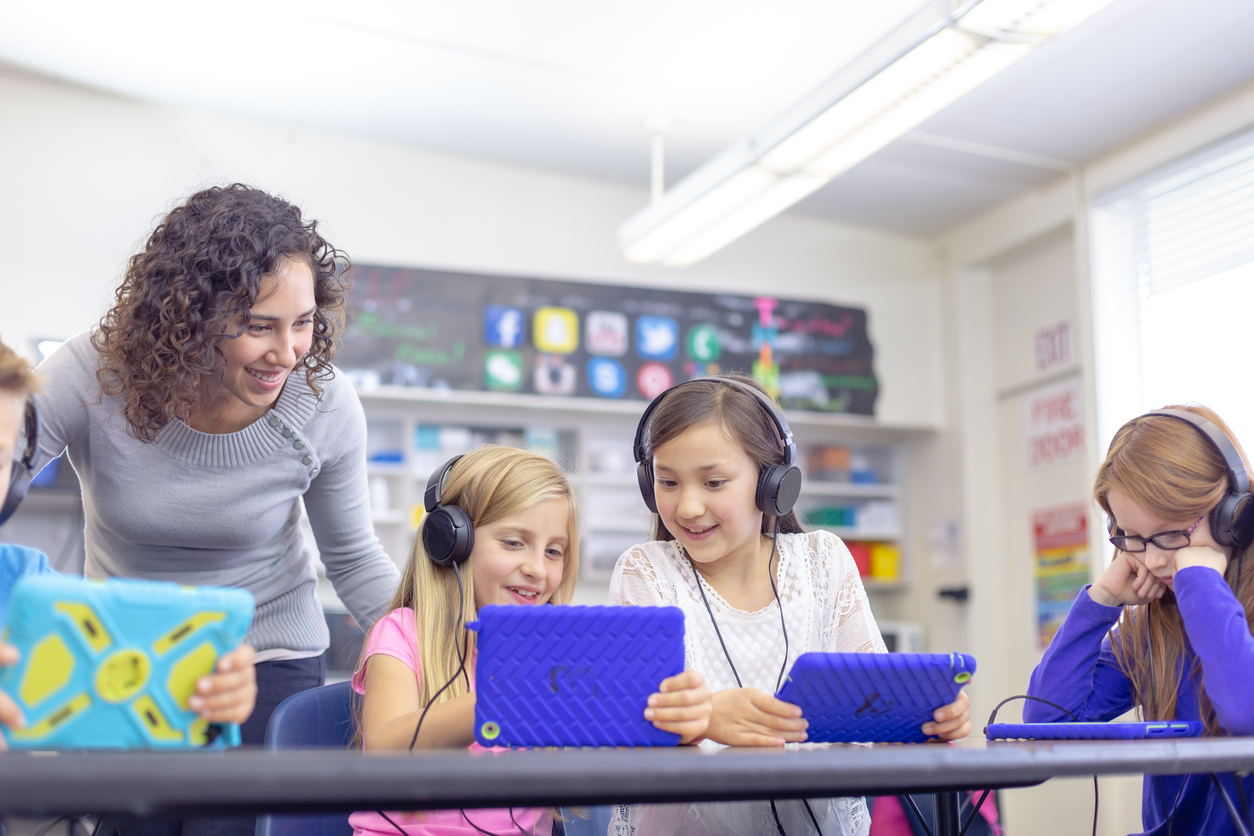Tailored Primary Science Tuition Singapore for Your Child’s Success
Tailored Primary Science Tuition Singapore for Your Child’s Success
Blog Article
Discovering the Various Mentor Techniques in Main Science Education Today
Inquiry-based learning, hands-on experiments, and the assimilation of innovation are redefining exactly how teachers engage young minds. Additionally, joint techniques and differentiated guideline are being employed to cater to the diverse requirements of trainees, boosting both engagement and understanding.
Inquiry-Based Discovering
Inquiry-Based Understanding (IBL) is a pedagogical approach that motivates pupils to discover scientific concepts with questioning, investigation, and hands-on testing. This approach emphasizes the duty of trainees as energetic participants in their learning, promoting crucial thinking and problem-solving abilities. By engaging with real-world inquiries, trainees come to be determined and curious, which boosts their understanding of clinical concepts.
In IBL, teachers function as facilitators, assisting students as they navigate their inquiries as opposed to supplying info straight. This student-centered strategy permits differentiation, accommodating numerous learning speeds and designs. Pupils develop abilities in developing hypotheses, developing experiments, and examining information, which are essential for scientific proficiency.
Furthermore, IBL promotes partnership amongst pupils, urging them to share searchings for and ideas. This cumulative questions promotes social abilities and a sense of area within the classroom. Furthermore, the process of questions encourages resilience, as students learn to embrace failing as a stepping rock toward understanding.
Hands-On Experiments
Hands-on experiments are a crucial part of efficient scientific research education, complementing the concepts of inquiry-based discovering. These experiments enable students to engage straight with clinical principles, promoting a deeper understanding through experiential understanding. By manipulating materials and observing end results, young students can realize abstract theories in tangible means.
Such activities advertise crucial reasoning and problem-solving skills, as pupils hypothesize results, conduct experiments, and examine outcomes. This procedure urges them to ask inquiries, refine their understanding, and develop a clinical frame of mind. Hands-on experiments can be tailored to varied understanding styles, ensuring that all pupils have the opportunity to involve meaningfully with the material.
Furthermore, hands-on experiments commonly encourage cooperation amongst peers, promoting team effort and interaction abilities. Functioning in groups enables pupils to share concepts, review findings, and find out from each other, which improves their total educational experience.
Including hands-on experiments right into the primary science educational program not just enhances the discovering setting yet additionally cultivates a long-lasting rate of interest in science. By proactively taking part in their education and learning, pupils are more probable to establish an enthusiasm for scientific query that prolongs beyond the class.

Innovation Assimilation
Incorporating technology right into main scientific research education and learning has actually become significantly crucial in fostering student engagement and improving finding out results. Making use of electronic tools, such as interactive simulations, digital laboratories, and instructional software program, supplies trainees with chances to check out clinical principles in ingenious means. These sources assist in a much deeper understanding of complex subjects by enabling learners to picture and manipulate variables that would be impractical in a traditional classroom setting.
Moreover, innovation integration encourages customized finding out experiences. Pupils can progress at their very own rate, revisiting challenging concepts through multimedia resources, which deal with various knowing styles. This versatility not just sustains individual development but additionally cultivates a sense of autonomy in learners.
Additionally, modern technology offers as a bridge to real-world science, linking students with current research and specialist contributions. Access to clinical journals and on the internet data sources widens pupils' viewpoints on scientific questions and cultivates important assuming skills.
Collaborative Understanding
Collaborative knowing plays a vital role in main science education by cultivating team effort and communication abilities amongst pupils. This technique urges students to collaborate, share understanding, and take part in problem-solving, which boosts their understanding of clinical ideas. By participating in group tasks, pupils find out to articulate their ideas, listen to varied viewpoints, and negotiate options, every one of which are vital abilities in both real-world and scholastic contexts.

Study shows that collaborative learning can result in raised inspiration and interaction in scientific research topics, as students discover satisfaction in common experiences (primary science tuition Singapore). Furthermore, this method prepares trainees for future collaborative undertakings, equipping them with the skills necessary for effective team effort in greater education and professional settings. Inevitably, embracing collective knowing in primary scientific research education and learning can dramatically enhance the discovering experience and promote a much deeper understanding of clinical query
Set Apart Direction

Distinguished guideline can show up in numerous means, such as differing the material, procedures, or items of knowing. Educators might use tiered assignments that provide varying levels of complexity, permitting trainees to function at their click over here corresponding preparedness levels. Furthermore, flexible grouping strategies can assist in partnership among pupils with different capacities, cultivating peer learning.
Evaluation plays a critical role in this strategy, as it informs direction and helps educators comprehend each pupil's special requirements. Developmental analyses, such as quizzes and observations, can guide teachers in changing their methods to improve discovering results. primary science tuition Singapore. Inevitably, by applying differentiated instruction in primary science education and learning, educators can grow an extra effective and fair learning environment, encouraging all pupils to reach their complete capacity in comprehending clinical phenomena
Final Thought
In recap, the varied teaching methods in primary science education, consisting of inquiry-based understanding, hands-on experiments, technology combination, joint knowing, and differentiated guideline, jointly add to an extra effective understanding environment. These approaches promote crucial thinking, analytic skills, and a much deeper understanding of clinical concepts. By applying these methods, instructors can produce encouraging and interesting classrooms that deal with the different requirements of pupils, ultimately cultivating a lifelong passion in science and boosting academic success.
Inquiry-Based Learning (IBL) is an instructional technique that encourages trainees to discover scientific ideas with questioning, investigation, and hands-on trial and error.Collective learning plays a vital duty in main scientific research education by promoting teamwork and communication skills amongst students.Research shows that joint learning can lead to increased inspiration and involvement in scientific research topics, as pupils find enjoyment in common experiences.In fostering a comprehensive discovering environment, separated direction arises as a vital method to fit the varied requirements and capacities of trainees in main scientific research education. Inevitably, by implementing set apart guideline in primary scientific research education and learning, educators can cultivate an extra fair and reliable knowing atmosphere, encouraging all trainees to reach their complete potential in comprehending clinical phenomena.
Report this page